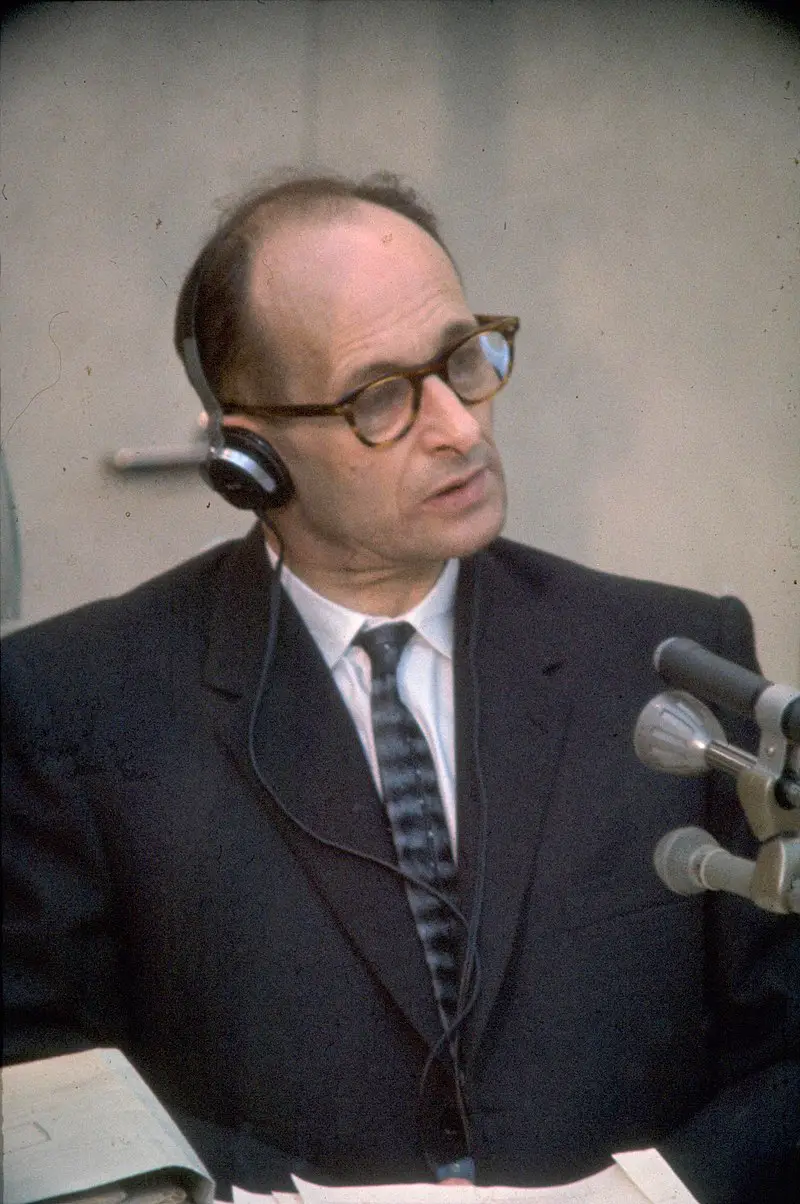Israeli President Rejects Eichmann’s Request For A Pardon
(May 31, 1962)
 |
The same day the Supreme Court rejected the appeal of his conviction for war crimes, Adolf Eichmann asked Israeli President Yitzhak Ben-Zvi for a pardon in a handwritten letter in German dated May 29, 1962. “There is a need to draw a line between the leaders responsible and the people like me forced to serve as mere instruments in the hands of the leaders,” he wrote. “I was not a responsible leader, and as such do not feel myself guilty.” He also repeated the claim, that was also rejected by the court, that he was only following orders.
Eichmann wrote, “It is not true that I was personally of such a high rank as to be able to persecute, or that I myself was a persecutor in the pursuit of Jews.” He added, “I declare once again, as I did in the presence of the court: I detest as the greatest of crimes the horrors which were perpetrated against the Jews and think it right that the initiators of these terrible deeds will stand trial before the law now and in the future.”
Denying that he was indifferent to the fate of his victims, he argued the judges did not “empathize with the time and situation in which I found myself during the war years” and added, “It is also incorrect that I never let myself be influenced by human emotions.”
Eichmann claimed that “after having witnessed the outrageous human atrocities, I immediately asked to be transferred. Also, during the police investigation I voluntarily revealed horrors that had been unknown until then, in order to help establish the indisputable truth.”
Eichmann’s wife and his five brothers also appealed for a pardon. Ms. Eichmann had asked, “as a wife and mother of four children,” for her husband’s life to be spared.
The cabinet discussed whether to support a pardon for Eichmann on May 29, 1962. Prime Minister David Ben-Gurion said philosopher Martin Buber was in favor to avoid turning Eichmann into a martyr. Some ministers favored a pardon for different reasons. Welfare Minister Yosef Burg, for example, quoted his rabbi as saying it was better “to let the murderer die every day anew.” Finance Minister Levi Eshkol said that “if it were possible that after the trial, he would walk through the world with a mark of Cain on his forehead and be treated like Cain, that would be much better than a five-minute [execution].”
Ultimately, the cabinet voted unanimously not to recommend a commutation.
On May 31, 1962, Ben-Zvi wrote to Justice Minister Dov Yosef, “After considering the pardon requests made on behalf of Adolf Eichmann and after having reviewed all the material presented to me, I came to the conclusion that there is no justification in giving Adolf Eichmann a pardon or easing the sentence imposed on him.”
Sources: Noa Shpigel, “State Archive Releases Record of Vera Eichmann’s Visit With Her Husband,” Haaretz, (June 1, 2015);
Isabel Kershner, “Pardon Plea by Adolf Eichmann, Nazi War Criminal, Is Made Public,” New York Times, (January 27, 2016).


